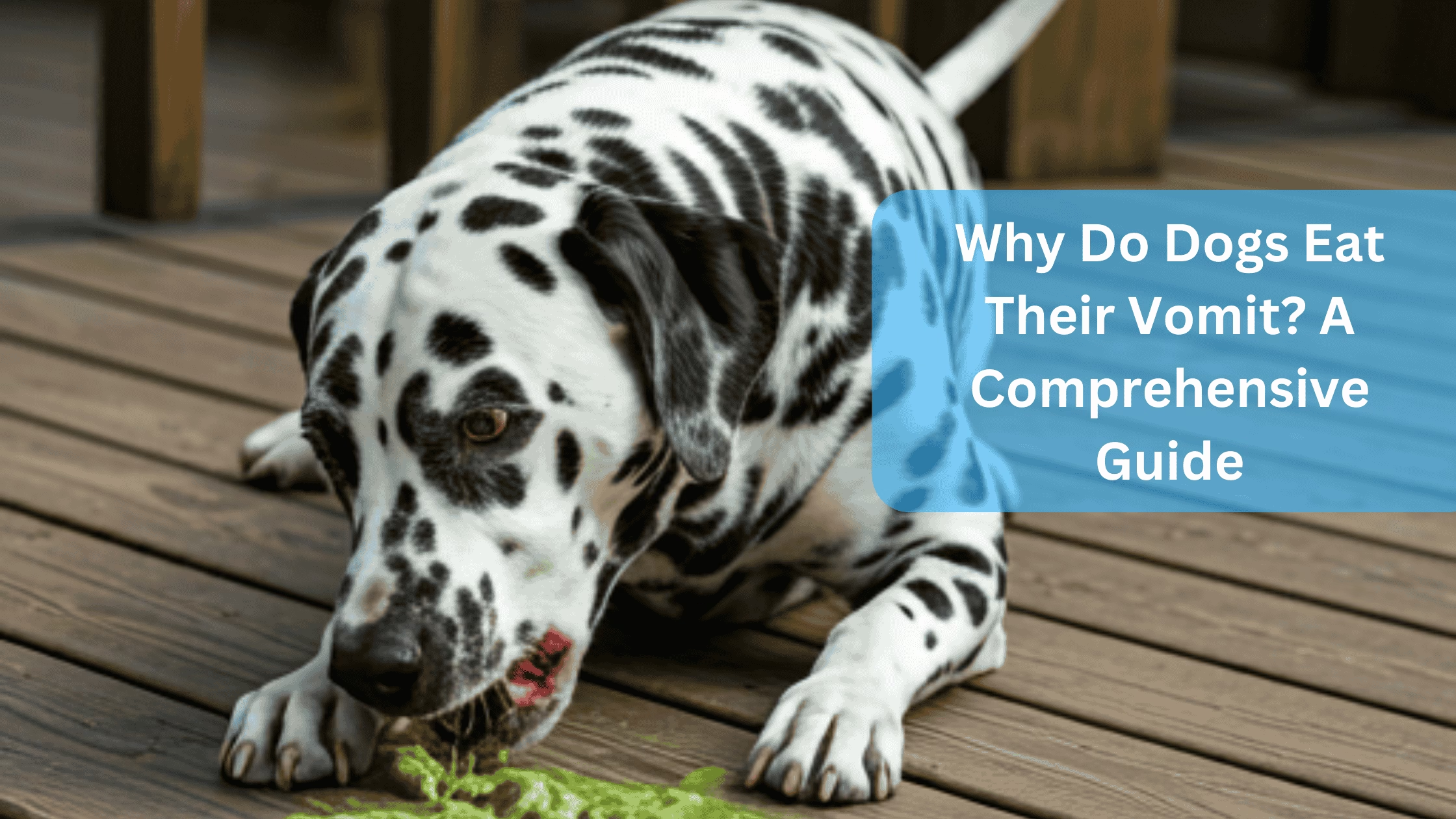Why Do Dogs Eat Their Vomit? If you’re a dog owner, chances are you’ve encountered the somewhat revolting sight of your furry friend munching on their own vomit.
While this behavior might seem gross to us humans, it’s not uncommon in the canine world.
In this guide, we’ll explore the reasons behind this behavior, its implications for your dog’s health, and how to manage it effectively—all while keeping things light-hearted and informative!
Understanding Canine Behavior
Dogs are fascinating creatures with instincts that often baffle us. Unlike humans, who might recoil at the sight of vomit, dogs have a completely different perspective.
To understand why dogs eat their vomit, we need to delve into their evolutionary history and natural instincts.
The Scavenger Instinct
Dogs are descendants of wolves, who are natural scavengers. In the wild, resources can be scarce, and every morsel counts.
When a wolf regurgitates food for its pups, it’s not just a gross parenting tactic; it’s a survival strategy.
This instinct has trickled down to our domestic dogs, who may see their vomit as a second chance at nutrition.
Sense of Smell
Did you know that dogs have an incredible sense of smell? They possess around 300 million olfactory receptors compared to our mere 6 million!
This means that what smells repulsive to us can still smell like delicious food to them. When your dog vomits, they might still detect undigested food particles that appeal to their senses.
Why Do Dogs Eat Their Vomit? – The Science Behind Vomit Eating
Now that we have a grasp on the instinctual reasons behind this behavior, let’s look at some scientific explanations.
Nutritional Value
When dogs vomit, especially shortly after eating, the contents may still contain partially digested food. This can be particularly enticing if they’ve consumed something tasty. For dogs, eating their vomit is akin to reclaiming lost nutrients.
Health-Related Factors
Sometimes the reason behind vomiting—and subsequent eating—can be health-related:
- Gastrointestinal Issues: Conditions like gastritis or dietary intolerances can lead to vomiting.
- Dietary Deficiencies: If a dog isn’t getting enough nutrients from their diet, they might turn to their vomit as a source of nutrition.
- Anxiety: Stressful situations can cause some dogs to vomit and then eat it as a coping mechanism.
Health Implications of Eating Vomit
While eating vomit is generally not harmful for dogs on occasion, there are situations where it could indicate underlying health issues.
When Is It a Concern?
If your dog frequently vomits and eats their vomit, it may be time to consult a veterinarian. Here are some signs that warrant professional attention:
- Frequent Vomiting: If your dog is vomiting regularly (more than once or twice in a short period), it could signal gastrointestinal problems.
- Changes in Appetite: A sudden decrease or increase in appetite can indicate health issues.
- Lethargy or Behavioral Changes: If your dog seems unusually tired or behaves differently than usual, it’s best to get them checked out.
How to Discourage This Behavior
While you may not be able to completely stop your dog from eating their vomit (after all, instincts are hard to break!), there are strategies you can implement to minimize the behavior.
Training Techniques
- Redirect Attention: When your dog starts to vomit, redirect their attention with a toy or treat.
- Positive Reinforcement: Reward your dog for ignoring their vomit with praise or treats when they do not engage in the behavior.
- Establish Routine: Regular feeding times can help regulate your dog’s digestion and reduce instances of vomiting.
Environmental Management
- Immediate Cleanup: As soon as you notice your dog has vomited, clean it up quickly before they have a chance to eat it.
- Dietary Adjustments: Consult with your vet about whether your dog’s diet needs adjusting—sometimes changing food can help reduce vomiting incidents.
When to Consult a Veterinarian
As mentioned earlier, if vomiting becomes frequent or is accompanied by other concerning symptoms, it’s crucial to consult with a veterinarian. They can perform tests and examinations to rule out serious health issues such as:
- Infections
- Parasites
- Pancreatitis
- Food Allergies
Early intervention can prevent more serious health problems down the line.
FAQs: Common Questions Answered
Is it normal for dogs to eat their vomit?
Yes! While it may seem gross, it’s rooted in their scavenging instincts.
Will eating vomit harm my dog?
Generally no; however, if vomiting is frequent or accompanied by other symptoms, consult your vet.
How can I stop my dog from eating vomit?
Training techniques and immediate cleanup can help discourage this behavior.
What should I do if my dog eats another dog’s vomit?
Monitor them for any signs of illness and consult your vet if you notice anything unusual.
Can certain foods make my dog more likely to vomit?
Yes! Foods that are rich or difficult for them to digest can lead to vomiting episodes.
Also Read: Can Dogs Eat Wheat and Wheat Products? A Comprehensive Guide
Also Read: How Do I Know If My Dog Is Healthy? Essential Health Quiz!
Conclusion: Embracing Your Dog’s Quirks
In conclusion, while the sight of your dog eating its own vomit may turn your stomach, understanding the reasons behind this behavior can help you manage it effectively.
Remember that dogs are guided by instincts that have been honed over thousands of years—what seems repulsive to us is often perfectly natural for them!
So next time you catch your pup in the act, take a deep breath and remind yourself that they’re just being… well, dogs! With proper care and attention, you can ensure that your furry friend stays healthy and happy—vomit-eating habits included!
Now go give your pup some love (but maybe not too close after they’ve had an upset stomach)! 🐾💖
Sources:







